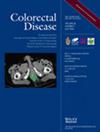Evaluation of pelvic floor rehabilitation in the prevention of low anterior resection syndrome: Study protocol of the CONTICARE trial
Abstract
Aim
Bowel dysfunction following sphincter-preserving rectal resection for cancer, commonly referred to as low anterior resection syndrome (LARS), significantly impacts patients' quality of life. Preventing this condition is essential for healthcare teams. Postoperative pelvic floor rehabilitation, including anal biofeedback therapy, has shown potential in alleviating established LARS symptoms. This trial aims to evaluate the effectiveness of pelvic floor rehabilitation prior to bowel continuity restoration in preventing LARS in patients undergoing sphincter-preserving rectal resection for cancer.
Methods
CONTICARE is a national multicentre randomized trial. Patients who have undergone total mesorectal excision with sphincter preservation and a defunctioning stoma (n = 174; 87 per arm) will be randomly assigned to either the rehabilitation or control group before stoma closure. The rehabilitation group will receive systematic pelvic floor rehabilitation, comprising four sessions before and six sessions after stoma closure, following a standardized approach. The control group will receive standard follow-up care, which includes symptom-based therapy after ileostomy closure. The primary outcome measure will be the severity of LARS, assessed using the dedicated LARS score at 6 months. Comparisons of faecal incontinence symptoms, quality of life and complications related to biofeedback therapy will also be evaluated at 6 weeks, 6 months and 1 year between the two groups.
Conclusion
Pelvic floor rehabilitation has the potential to enhance symptom management and quality of life for patients following rectal resection by preventing LARS. The combination of anal exercises and biofeedback therapy, which has been extensively studied without reported adverse effects, suggests that the anticipated benefits outweigh any potential risks.
Clinical Trial Registration: Registration number NCT03876561, first published on 15 March 2019. ClinicalTrials.gov.

 求助内容:
求助内容: 应助结果提醒方式:
应助结果提醒方式:


